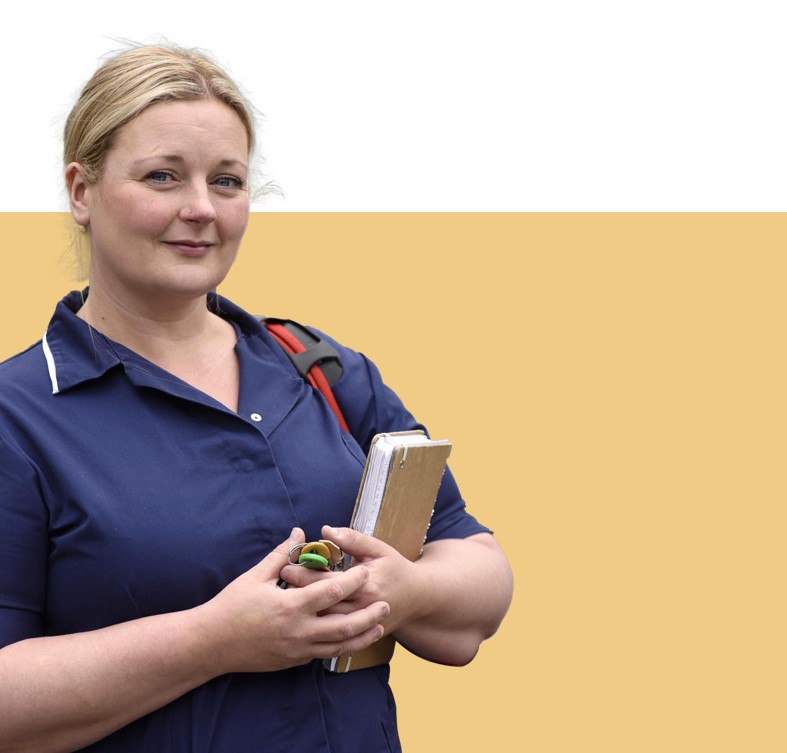 Proud to be a Partnership
Proud to be a Partnership
Our West Yorkshire Health and Care Partnership has existed since 2016. It was established on the belief that working together towards common goals rather than competition is the best way to join up services to meet people’s needs, tackle inequalities and improve health outcomes.
Over this time, we have built close working relationships with partners, such as the voluntary community social enterprise sector (VCSE), universities, West Yorkshire Police, The West Yorkshire Combined Authority and the housing sector. These partnerships allow us to work together on the important things that matter for people’s health and wellbeing. Our previous strategy was published in March 2020 and included our 10 big ambitions for health and care, delivery of which are dependent on the strength of these relationships.
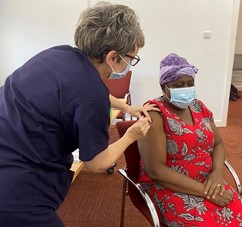 During the COVID-19 pandemic we witnessed the best of our health and care services. We rapidly changed working practices so that we could safely treat people with COVID-19 whilst supporting people’s ongoing needs; we significantly increased capacity to deal with the peaks of infection and severe illness. All our teams across the health, care and community sector (VCSE) pulled out all the stops to keep people safe and well.
During the COVID-19 pandemic we witnessed the best of our health and care services. We rapidly changed working practices so that we could safely treat people with COVID-19 whilst supporting people’s ongoing needs; we significantly increased capacity to deal with the peaks of infection and severe illness. All our teams across the health, care and community sector (VCSE) pulled out all the stops to keep people safe and well.
The demand for health and care has been rising over time, as a result of an ageing population and more people living with multiple long-term conditions. The pandemic further increased demand for health and care services, as well as disrupting what could safely be provided due to the risk of transmission. This now means the pressure on services is higher than ever. People who need an operation are waiting longer than at any time in the past 15 years, and the accessibility of services such as primary care and urgent care is not as good as we would like it to be.
With the partnership taking responsibility for the planning of more primary care services from April 2024, there will be an opportunity for us to work towards targeting resources to those most in need. These challenges will be further exacerbated by the significant pressure on funding and workforce pressure, including on the social care sector.
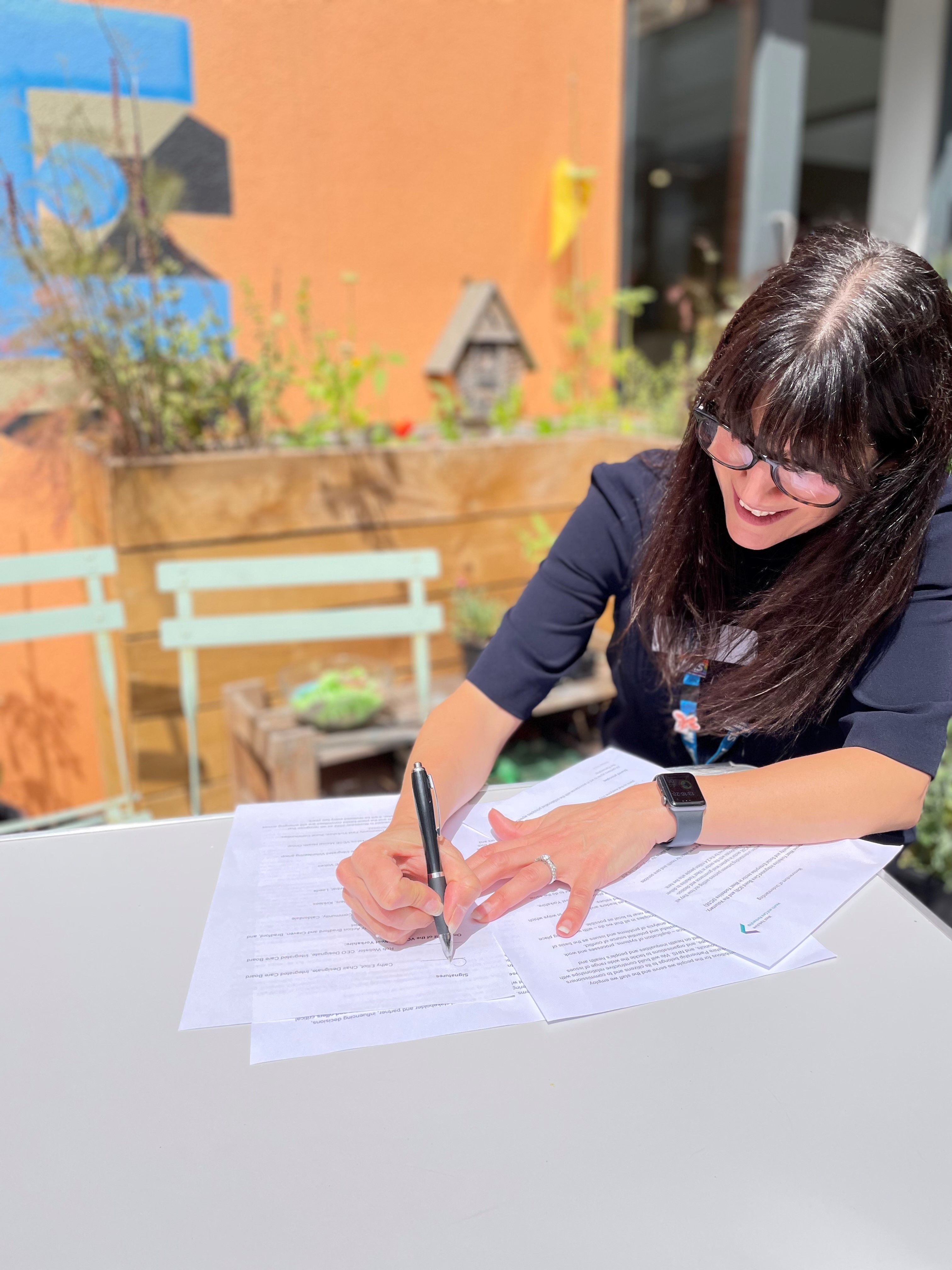 A challenge our Partnership must address is our continued focus on prevention and proactively supporting people to stay well at home; and secondly arranging services in a way so that people receive care from the right people in the most appropriate setting.
A challenge our Partnership must address is our continued focus on prevention and proactively supporting people to stay well at home; and secondly arranging services in a way so that people receive care from the right people in the most appropriate setting.
This will mean multidisciplinary teams continuing to work together to organise care around people and their families, and professional and organisational barriers being broken down.
Whilst these challenges are significant, we believe that collaboration at all levels across our heath and care system is the best way of tackling them. Our Partnership acts as a strategic influencing voice at regional and national levels for people who live, work or study in West Yorkshire in relation to health and wellbeing.
This strategy describes how we will do this, and the ambitions we hope to achieve for everyone.
Integrated care partnerships
The Health and Care Act 2022 introduced new legislative measures that aim to make it easier for health and care organisations to deliver joined-up care for people. As part of the new statutory arrangements, the Act describes how ‘Integrated Care Partnerships’ (ICPs, for West Yorkshire this is our Partnership Board) will bring together a wider range of partners, not just the NHS, to develop a strategy to address the broader health, public health, and social care needs of people and communities.
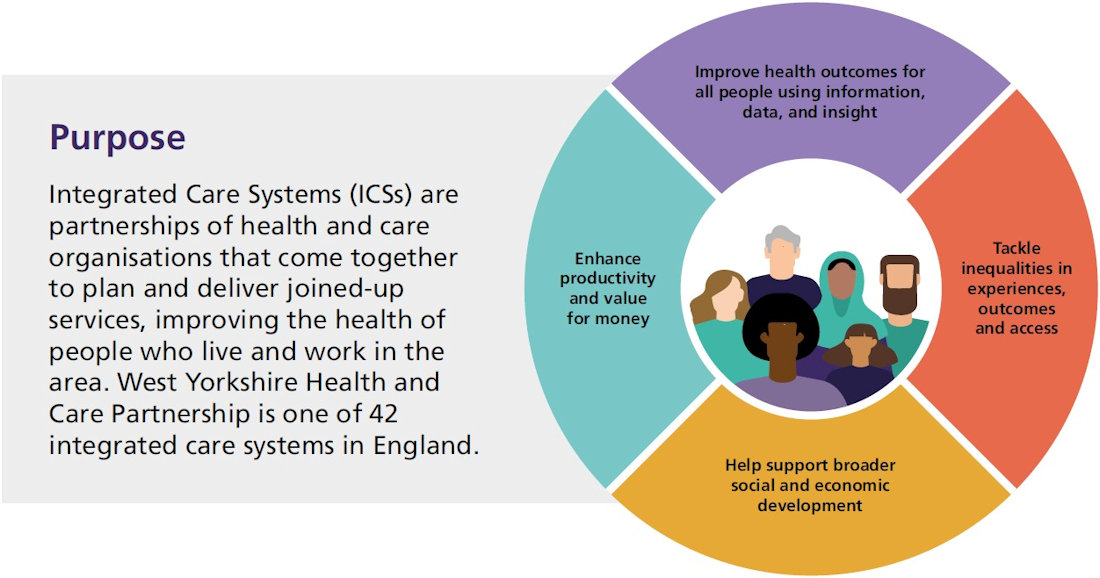
‘Joining up care for people, places and populations’, the government’s proposals for health and care integration published on 9 February 2022, has signalled the importance of integrated ‘place’ level working towards a common set of locally agreed outcomes. This is something which is at the heart of the way in which we work as a Partnership.
The Health and Care Act also sets out how ICPs should develop an Integrated Care Strategy (such as this one) to set the direction of the system and to show how they intend to deliver more joined-up, preventative, and person-centred care for their whole population, across the course of their life. This includes commissioning care and support for people of all ages with palliative and end of life care needs.
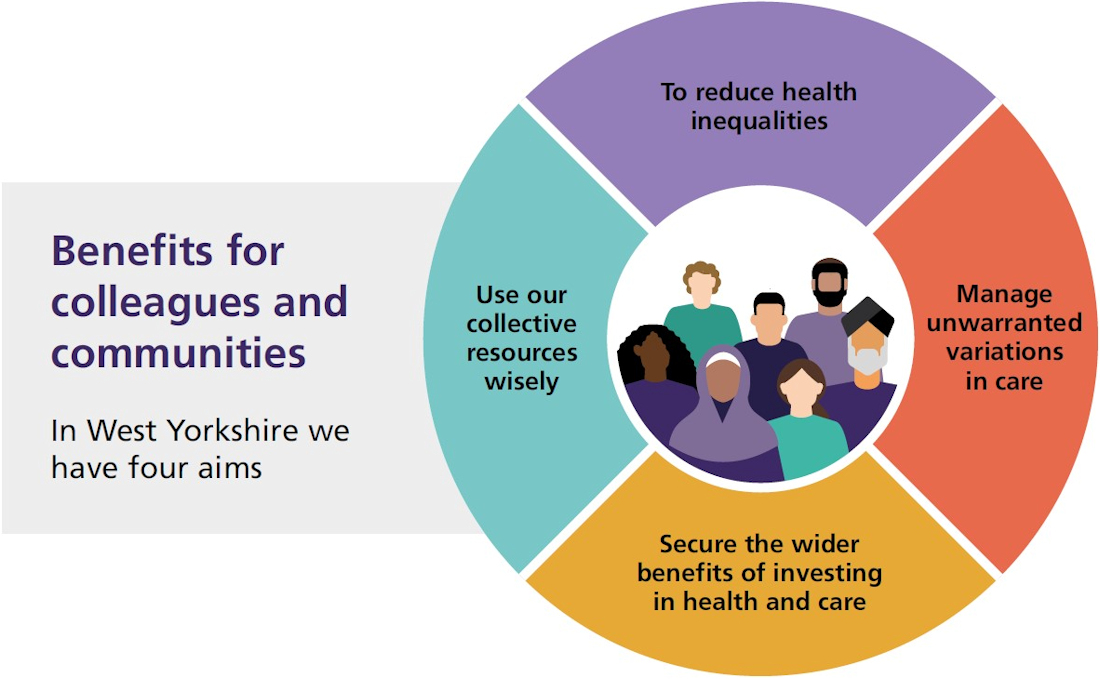
Our West Yorkshire Health and Care Partnership
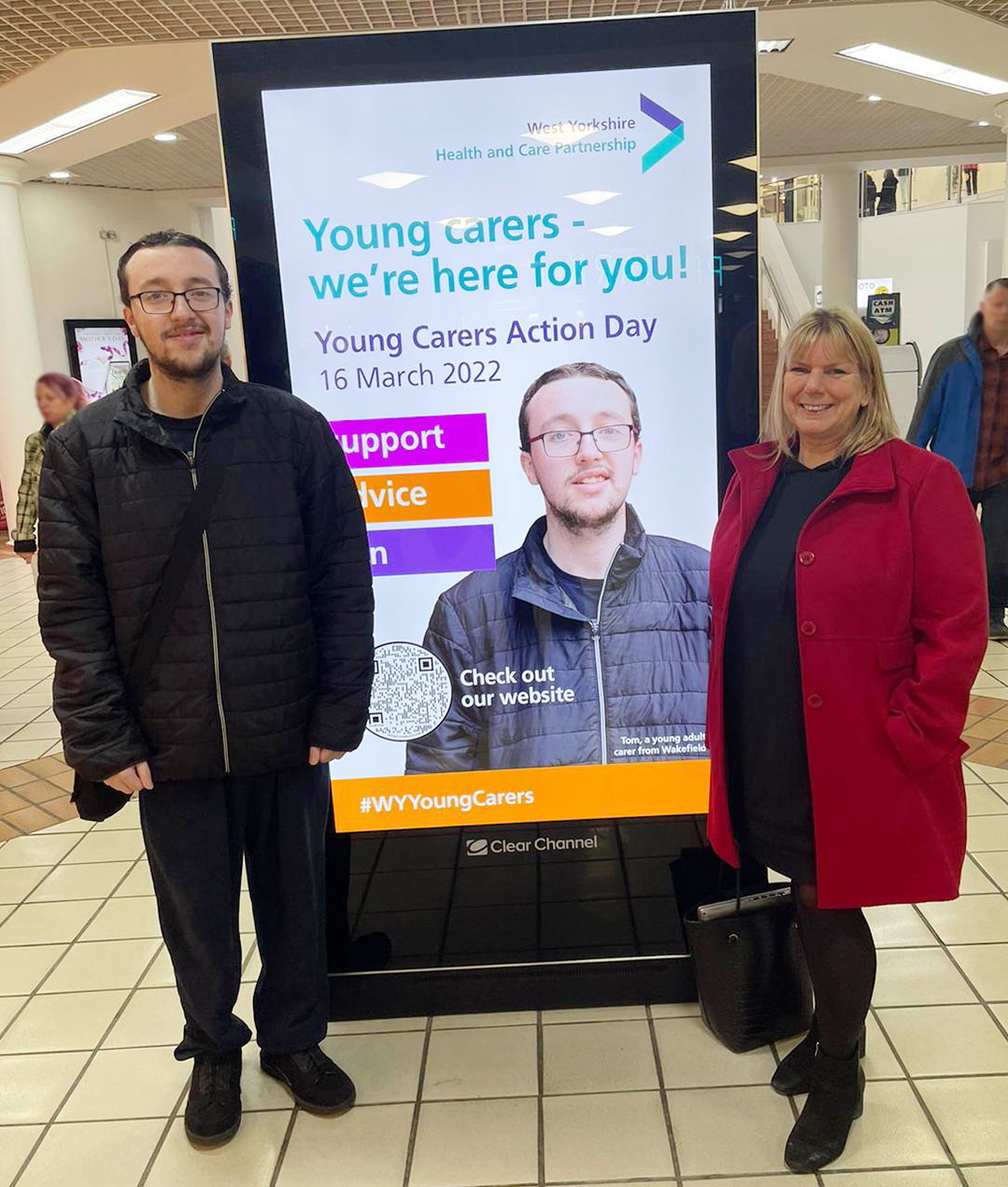 West Yorkshire Health and Care Partnership (the Partnership) is a large integrated care system (ICS) that supports 2.4 million people, living in urban and rural areas. 770,000 are children and young people. 530,000 people live in areas ranked in the most deprived 10% of England. 20% of people are from minority ethnic communities.
West Yorkshire Health and Care Partnership (the Partnership) is a large integrated care system (ICS) that supports 2.4 million people, living in urban and rural areas. 770,000 are children and young people. 530,000 people live in areas ranked in the most deprived 10% of England. 20% of people are from minority ethnic communities.
There are an estimated 400,000 unpaid carers, as many don’t access support. Together we employ over 100,000 staff and work alongside thousands of volunteers.
Our Partnership is made up many different organisations and collaboratives across West Yorkshire, including our Partnership Board, which is the Integrated Care Partnership for West Yorkshire. It also contains the NHS West Yorkshire Integrated Care Board (WY ICB), which is the statutory NHS organisation responsible for developing a joint forward plan in collaboration with NHS trusts/foundation trusts and other system partners for meeting the health needs of the population. These are all supported by organisations working together across all services.
Find out ‘who is who’ on our NHS West Yorkshire Integrated Care Board and Partnership Board and watch some films about the positive difference colleagues want to make to people’s lives.
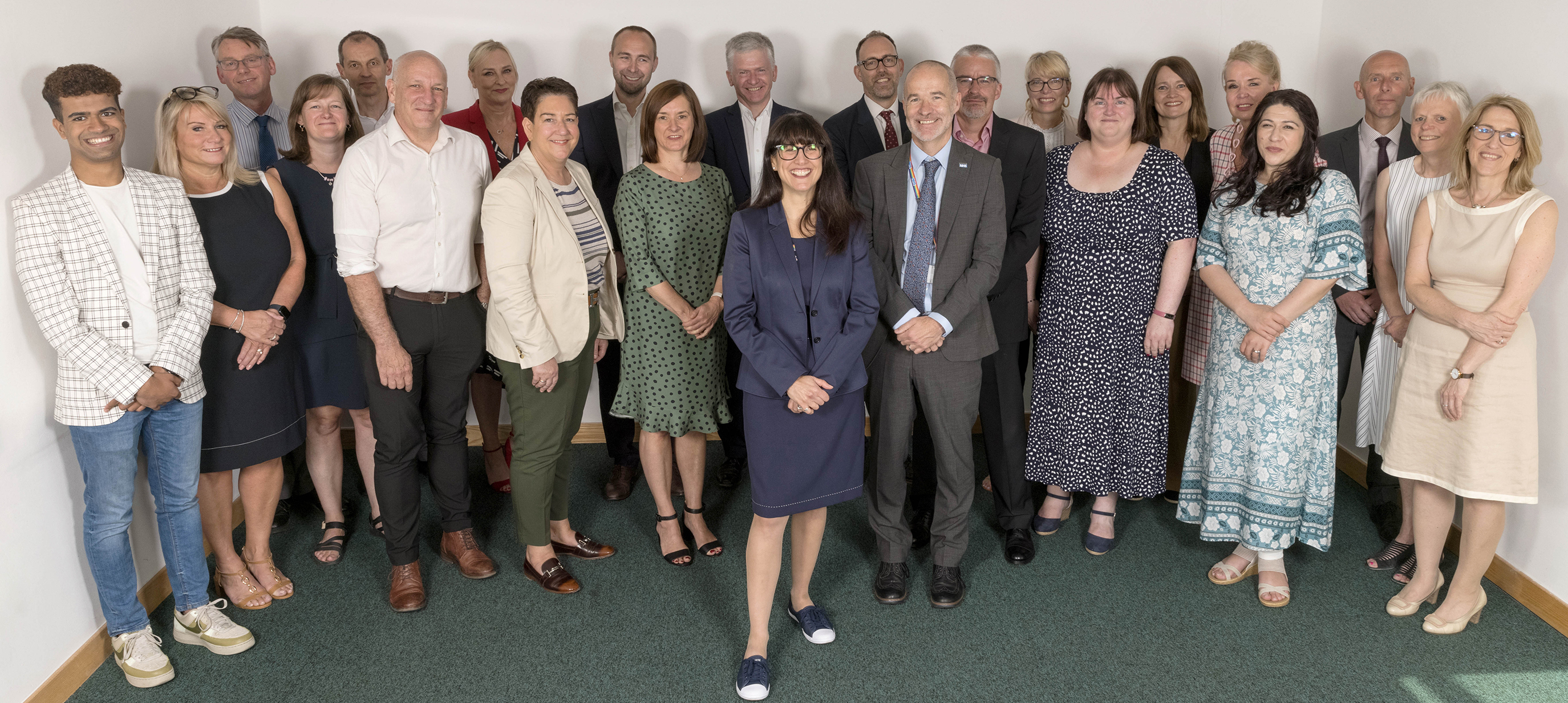
Our work begins in the neighbourhoods across West Yorkshire, keeping people, families, the health and care teams that support them within local communities at the centre of everything we do. Our five local places (Bradford District and Craven, Calderdale, Kirklees, Leeds and Wakefield District) support this work, coming together as partners in each place to meet the needs of local populations.
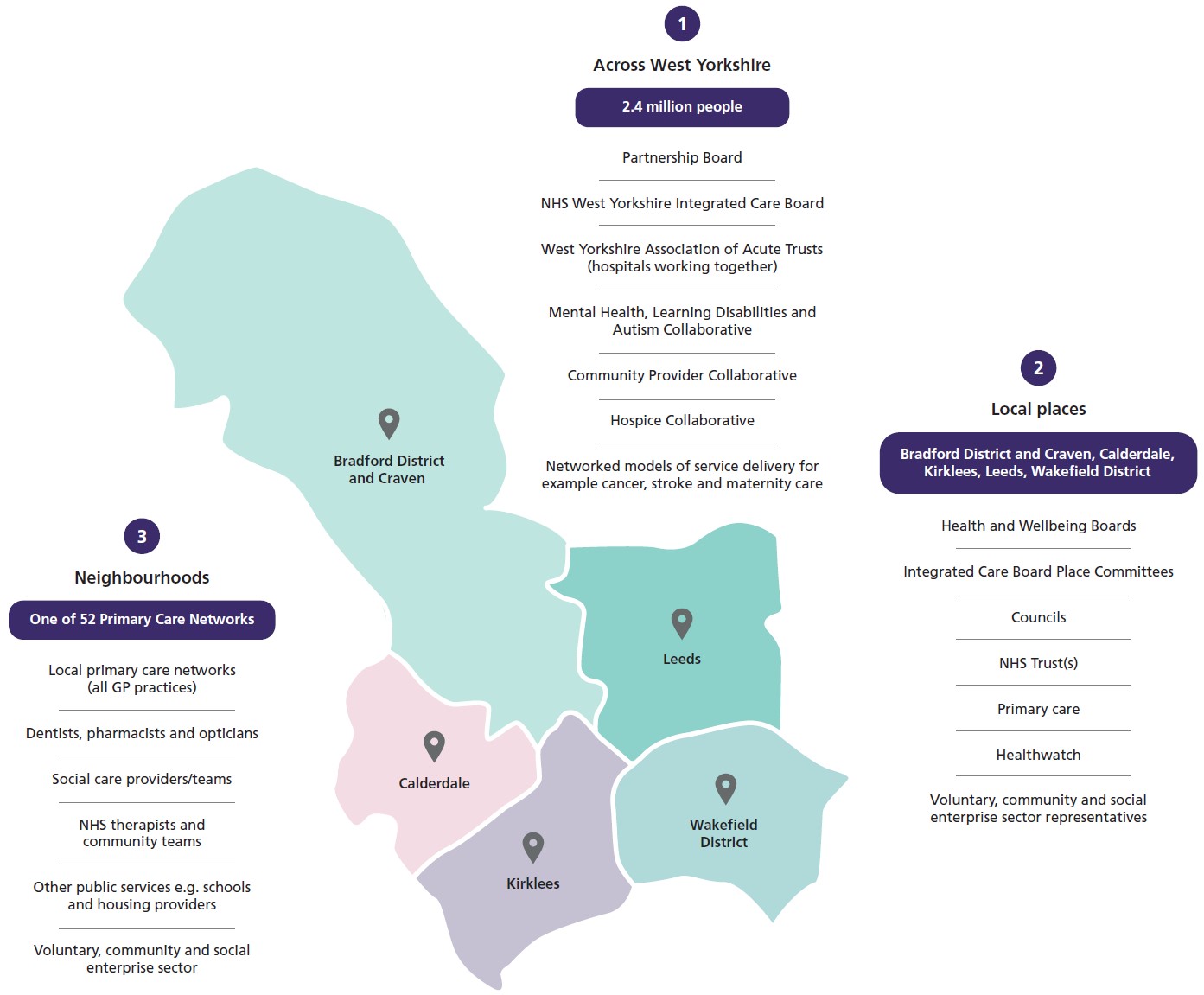
Within the Partnership we have many partners working together across the NHS, local authorities, the voluntary community social enterprise sector (VCSE), Healthwatch, hospices, and wider public sector organisations. We come together to better join up health and care, to tackle health inequalities and to improve health and care services for everyone.
We also come together in partnership with some of our wider partners like The West Yorkshire Mayor, The West Yorkshire Combined Authority, Local Resilience Forum and universities to maximise resources. This includes buildings, skills and expertise and working together for a common purpose of reducing the health inequalities we know exist.
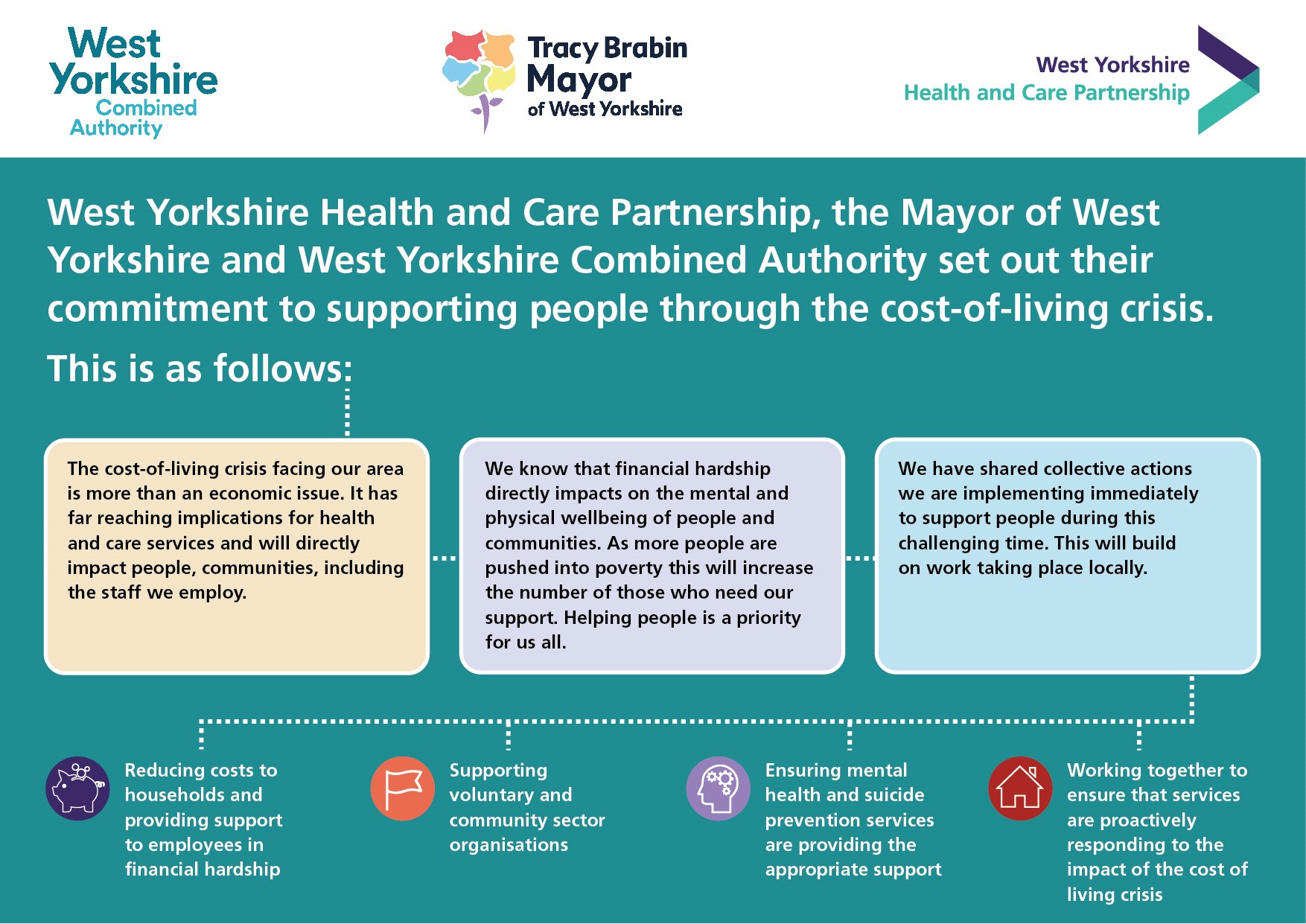
The Mayor of West Yorkshire, Tracy Brabin, said:
“We’re doing what we can to help our communities during this extraordinary cost of living crisis, working closely with partners to get people the support that they need. Our Emergency Cost of Living Fund will help keep people warm and fed this winter, while protecting jobs and livelihoods through vital business support. By working with our partners, we can make a real difference to the people of West Yorkshire during these challenging and difficult times”.
 The Partnership (our Integrated Care System), published ‘Better Health and Care for Everyone: Our Five Year Plan’ in March 2020, setting out how we work together to give everyone in West Yorkshire the very best start and every chance to live a long and healthy life.
The Partnership (our Integrated Care System), published ‘Better Health and Care for Everyone: Our Five Year Plan’ in March 2020, setting out how we work together to give everyone in West Yorkshire the very best start and every chance to live a long and healthy life.
Since its publication, the context and focus for our work has changed significantly. Whilst we have made good progress across a range of areas in this plan, the COVID-19 pandemic and cost of living crisis has meant that our Partnership has necessarily needed to shift its focus away from our long-term ambitions to more immediate operational pressures.
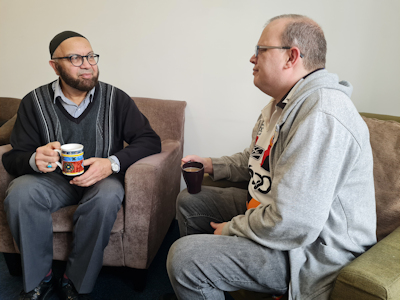 The scale of challenge has also increased in several areas, most notably the widening of inequalities, increasing levels of trauma and adversity, mental health difficulties and the ongoing impact of poverty.
The scale of challenge has also increased in several areas, most notably the widening of inequalities, increasing levels of trauma and adversity, mental health difficulties and the ongoing impact of poverty.
Responding to this changing context, we have refreshed our existing five-year plan to develop this new strategy. Putting people at the heart of the strategy, it is built from our health and wellbeing strategies for our five places. These have been developed to respond to and are informed by, their local Joint Strategic Needs Assessments (JSNA). This strategy sets out where there is an opportunity and need to address an issue at a West Yorkshire level. We do this through our three tests:
- Sharing good practice across the Partnership
- Working at scale to ensure the best possible health outcomes for people
- Working together to tackle complex issues.

